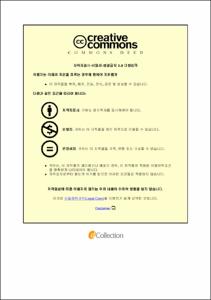미숙아 아버지의 양육스트레스와 애착이 양육효능감에 미치는 영향
- Abstract
- Effects of preterm infants father’s parenting stress and attachment on parenting efficacy
Kyoung Min, Lee
Departments of Nursing
The Graduate school of Pukyong National University
(Directed by Prof. Euna, Park, Ph. D. in Nursing)
Abstract
This study is a descriptive research study to identify influential factors of parenting stress and attachment on parenting efficacy of fathers with premature infants
The recruitment process was conducted online and offline from January 16, 2017 to April 30, 2017. A total of 161 questionnaires were collected, 31 copies from the father of the infant who visited the child hospital in U city, 3 copies returned by mail, and 127 copies via the internet community for premature parents. A total of 153 copies were used for the study, with the exception of the unclear 8 copies.
The research tools for this study were ‘Korean Parenting Stress Index Short Form (K-PSI-SF)’ adjusted, standardized, and condensed by Lee, Chung, Park, & Kim(2008) from ‘Parenting Stress Index (PSI)’ developed by Abidin (1995), attachment tools developed by Hwang (2005), as well as tool adapted, adjusted and supplemented by Shin (1997) from ‘Parenting Sense of Competence (PSOC)’ developed by Gibaud-Wallston and Wandersman (1978). The collected data were analyzed for frequency, percentage, mean, standard deviation, t-test, ANOVA, Pearson's correlation coefficient and multiple regressions analysis using SPSS 24.0 program.
The results of the study are summarized as follows.
Parenting efficacy according to general characteristics was significantly different from the period of hospitalization in neonatal intensive care unit (t=2.05, p=0.042). Parenting efficacy of fathers with premature infants showed a significant negative correlation(r=-0.723, p<.001) with parenting stress and a positive correlation with attachment(r=0.545, p<.001). The factors affecting the parenting efficacy of fathers with premature infants were parenting stress (t=-9.06, p<.001), attachment(t=3.39, p<.001), and more that 30 days of hospitalization period in neonatal intensive care unit(t=2.28, p=0.024), respectively.
It is important to arrange for the adjustment, intervention and reduction of appropriate parenting stress for the father in a process in which a child born as a premature infant grows up at home after discharge from a neonatal intensive care unit. In addition, a stable attachment relationship with children may have a positive effect on the father's parenting efficacy, which may have a favorable effect on the physical and emotional development of infants born to premature infants.
Key words: Preterm infant, Father, Parenting stress, Attachment, Parenting efficacy,
- Issued Date
- 2017
- Awarded Date
- 2017. 8
- Type
- Dissertation
- Publisher
- 부경대학교
- Affiliation
- 부경대학교 대학원
- Department
- 대학원 간호학과
- Advisor
- 박은아
- Table Of Contents
- Abstract iv
I. 서론 1
1. 연구의 필요성 1
2. 연구의 목적 4
3. 용어 정의 5
II. 문헌 고찰
1. 미숙아 아버지의 양육스트레스와 양육효능감 7
2. 미숙아 아버지의 애착과 양육효능감 9
III. 연구방법
1. 연구 설계 11
2. 연구 대상 11
3. 연구 도구 12
4. 자료수집 방법 14
5. 윤리적 고려 15
6. 자료 분석 방법 16
IV. 연구결과
1. 미숙아 아버지의 일반적 특성 17
2. 미숙아의 일반적 특성 19
3. 미숙아 아버지의 양육스트레스, 애착, 양육효능감의 정도
20
4. 미숙아 아버지와 영아의 일반적 특성에 따른 양육효능감의
차이 23
5. 미숙아 아버지의 양육스트레스, 애착, 양육효능감의 상관
관계 25
6. 미숙아 아버지의 양육효능감에 영향을 미치는 요인 26
V. 논의 28
VI. 결론 및 제언 34
참고문헌 36
부록 50
부록 1. 동의서 및 설문지 50
부록 2. IRB 심사결과 신청서 63
부록 3. 양육스트레스 도구 사용 동의 63
부록 4. 애착 도구 사용 동의서 64
부록 5. 양육효능감 도구 사용 동의 65
- Degree
- Master
- Files in This Item:
-
-
Download
 미숙아 아버지의 양육스트레스와 애착이 양육효능감에 미치는 영향.pdf
기타 데이터 / 623.89 kB / Adobe PDF
미숙아 아버지의 양육스트레스와 애착이 양육효능감에 미치는 영향.pdf
기타 데이터 / 623.89 kB / Adobe PDF
-
Items in Repository are protected by copyright, with all rights reserved, unless otherwise indicated.